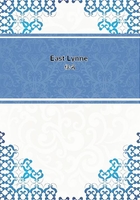
第196章
Mr. Carlyle glanced at her as he caught her choking sobs just as he would have glanced at any other attentive governess--feeling her sympathy, doubtless, but nothing more; she was not heart and part with him and his departing boy. Lower and lower bent he over that boy; for his eyes were wet. "Don't cry, papa," whispered William, raising his feeble hand caressingly to his father's cheek, "I am not afraid to go.
Jesus is coming for me."
"Afraid to go! Indeed I hope not, my gentle boy. You are going to God --to happiness. A few years--we know not how few--and we shall all come to you."
"Yes, you will be sure to come; I know that. I shall tell mamma so. I dare say she is looking out for me now. Perhaps she's standing on the banks of the river, watching the boats."
He had evidently got that picture of Martin's in his mind, "The Plains of Heaven." Mr. Carlyle turned to the table. He saw some strawberry juice, pressed from the fresh fruit, and moistened with it the boy's fevered lips.
"Papa, I can't think how Jesus can be in all the boats! Perhaps they don't go quite at the same time. He must be, you know, because He comes to fetch us."
"He will be yours, darling," was the whispered, fervent answer.
"Oh, yes. He will take me all the way up to God, and say, 'Here's a poor little boy come, you must please to forgive him and let him go into Heaven, because I died for him!' Papa did you know that mamma's heart broke?"
"William, I think it likely that your poor mamma's heart did break, ere death came. But let us talk of you, not of her. Are you in pain?"
"I can't breathe; I can't swallow. I wish Joyce was here."
"She will not be long now."
The boy nestled himself in his father's arms, and in a few minutes appeared to be asleep. Mr. Carlyle, after a while, gently laid him on his pillow, and watched him, and then turned to depart.
"Oh, papa! Papa!" he cried out, in a tone of painful entreaty, opening wide his yearning eyes, "say good-bye to me!"
Mr. Carlyle's tears fell upon the little upturned face, as he once more caught it to his breast.
"My darling, your papa will soon be back. He is going to bring mamma to see you."
"And pretty little baby Anna?"
"And baby Anna, if you would like her to come in. I will not leave my darling boy for long; he need not fear. I shall not leave you again to-night, William, when once I am back."
"Then put me down, and go, papa."
A lingering embrace--a fond, lingering, tearful embrace--Mr. Carlyle holding him to his beating heart, then he laid him comfortably on his pillow, gave him a teaspoonful of strawberry juice, and hastened away.
"Good-bye, papa!" came forth the little feeble cry.
It was not heard. Mr. Carlyle was gone, gone from his living child--forever. Up rose Lady Isabel, and flung her arms aloft in a storm of sobs!
"Oh, William, darling! in this dying moment let me be to you as your mother!"
Again he unclosed his wearied eyelids. It is probable that he only partially understood.
"Papa's gone for her."
"Not /her/! I--I----" Lady Isabel checked herself, and fell sobbing on the bed. No; not even at the last hour when the world was closing on him, dared she say, I am your mother.
Wilson re-entered. "He looks as if he were dropping off to sleep," quoth she.
"Yes," said Lady Isabel. "You need not wait, Wilson. I will ring if he requires anything."
Wilson though withal not a bad-hearted woman, was not one to remain for pleasure in a sick-room, if told she might leave it. She, Lady Isabel, remained alone. She fell on her knees again, this time in prayer for the departing spirit, on its wing, and that God would mercifully vouchsafe herself a resting-place with it in heaven.
A review of the past then rose up before her, from the time of her first entering that house, the bride of Mr. Carlyle, to her present sojourn in it. The old scenes passed through her mind like the changing picture in a phantasmagoria.
Why should they have come, there and then? She knew not.
William slept on silently; /she/ thought of the past. The dreadful reflection, "If I had not done as I did, how different would it have been now!" had been sounding its knell in her heart so often that she had almost ceased to shudder at it. The very nails of her hands had, before now, entered the palms, with the sharp pain it brought.